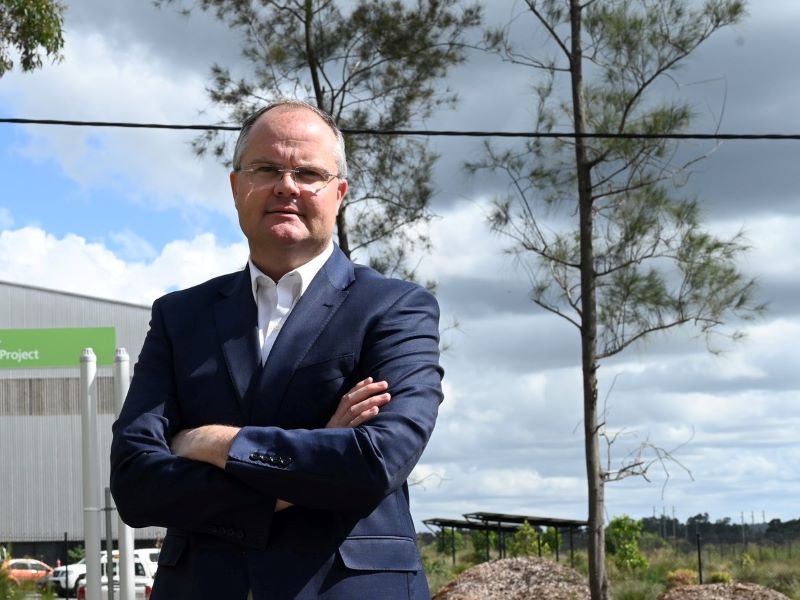The Coalition is reserving judgement on the government’s new EV strategy, despite the plan not committing any funding and locking in only one clear policy to introduce an overdue vehicle fuel-efficiency standard.
Shadow minister for climate change and energy Ted O’Brien on Thursday said the Opposition supports electric vehicles (EV) but needed more time to consider the 45-page document.
“The Coalition will take the time to study the government’s EV Strategy. As always, we will be constructive where we can and critical where we must,” he said.
“It’s critical that the government works with the transport sector to reduce emissions, and an increasing uptake of EVs is an important part of the formula,” Mr O’Brien said.

Australia’s inaugural National EV Strategy was released on Wednesday, confirming the Albanese government will impose a fuel efficiency standard on new cars.
The move – which experts say is long overdue and will stop Australia being a dumping ground for older, dirtier and more inefficient vehicles – will need another round of consultations, pushing the required legislation to the end of the year or beyond.
“I’d generally would have liked to see more speed on this,” Electric Vehicles Council chief executive Behyad Jafari told InnovationAus.com.
“Given there are already standards in place in the US, Europe, New Zealand, this discussion paper asked a lot of questions that could have already been more formed opinions by the government.”
The new strategy contains no new financial incentives beyond the cuts to fringe benefits tax Labor legislated last year, and there is no target for EV uptake.
The Greens have also criticised the new plan as a “roadmap with no destination” that keeps Australia “in the slow lane” on EVs.
Despite criticism of the unambitious nature of the strategy, the Opposition won’t endorse it even as a starting point.
Mr O’Brien said the Coalition would take a principled approach to reviewing the EV strategy that balances emissions reduction, maximising choice and minimising costs.
“Genuine consumer choice for new vehicle and fuel technologies is key. We want to ensure Australian motorists can choose the vehicle that’s right for them – whether that’s electric, hybrid, petrol, diesel or hydrogen,” he said.
“We don’t want to see the costs of vehicles go up, nor do we want Australians to be financially disadvantaged based on where they live, what they earn, the work they do or their unique way of life.”
When in government, the Coalition ran a scare campaign against Labor’s 2019 electric vehicle election policy to target half of all new vehicle sales to be electric by 2030, claiming it would “end the weekend”.
The Nationals’ shadow infrastructure minister, Bridget McKenzie, on Wednesday criticised the new strategy as more stalling on reform and a missed opportunity to achieve national consistency with nation-wide or harmonised road user charges.
She told Guardian Australia that state governments “are already grappling with this issue” and implementing “different regimes”.
The National EV Strategy said submissions to it had “pointed to uncertainty around the application of road user charging on EVs” and that several factors beyond EV uptake would effect the reduction in fuel excise tax revenue the charges are supposed to offset.
“The Australian government will continue to update and enhance modelling of the long-term impact of increased EV uptake on fuel excise in the context of regular Budget updates and the upcoming Intergenerational Report,” the strategy said.
Do you know more? Contact James Riley via Email.

